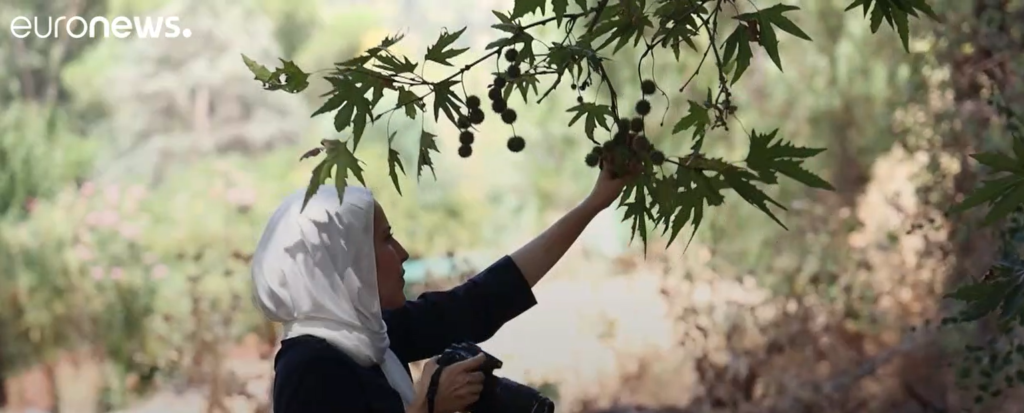Picture Credit: Deema Assaf and Nochi Motoharu carrying out a vegetation survey in Jebel Birqish, Jordan – Copyright Raja Abdelmalek
SCENES shines a spotlight on youth around the world that are breaking down barriers and creating change. The character-driven short films will inspire and amaze, as these young change-makers tell their remarkable stories.
Deema Assaf spent 10 years forging a career as an architect in Amman, but the job she once took great pride in began to fill her with guilt.
The event that sparked this shift came in 2017, when working on a project at a nature reserve in the North of Jordan, Deema learnt of the history of her country’s natural topography.
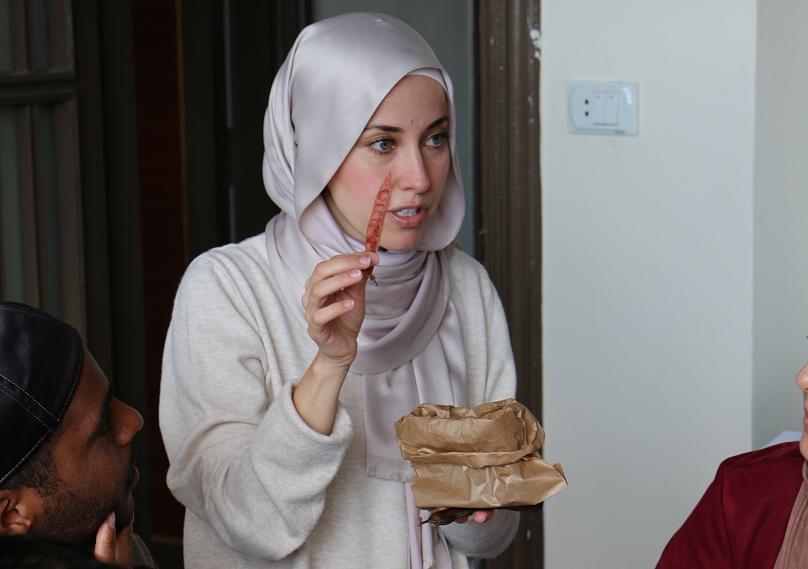
“We had dense forests in Jordan, with amazing biodiversity, including elephants, rhinos and the Asiatic lion; different animals that used to coexist with people here,” she explains. “That made me see the landscape in a different light and the potential of that landscape if human intervention was not affecting it in a negative way.”
The discovery led Deema on a new journey, where she was determined to counter urbanisation by creating forests. “In Jordan, we are witnessing the impact of climate change and the side effects of biodiversity loss. I truly believe that the most important and urgent thing that we can do is restore the native ecosystems,” she told Scenes.
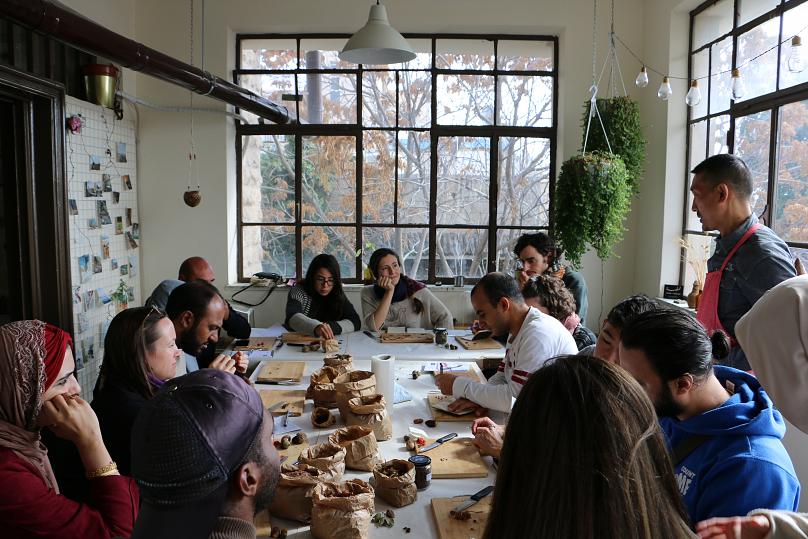
Growing a 100-year-old forest in 10 years
Deema teamed up with the Japanese environmentalist Nochi Motoharu in the hope of bringing some green to the desert city. The pair wanted to experiment with a unique way to create forests, which is called the Miyawaki method.
Developed in Japan in the 1970s by the Japanese botanist Akira Miyawaki, the method plants native species close together so that they can grow faster in a protective environment. It essentially mimics how nature works, allowing a 100-year-old forest to be grown in just 10 years.
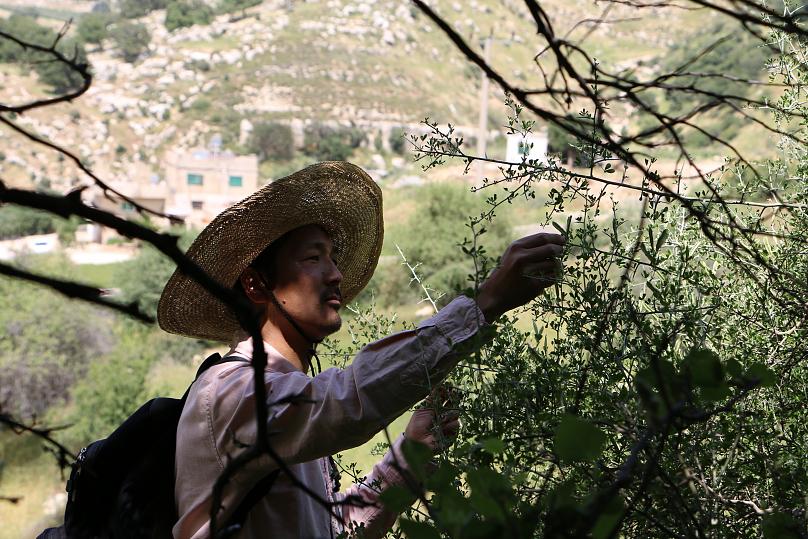
Although the Miyawaki method has been widely used throughout the world, it had yet to be trialed in the Middle East. “We tried to approach botanists and ecologists, but many of them were really sceptical about the whole thing and they said it wouldn’t work for Jordan.”
An Oasis in the heart of a city
Despite the lack of support for their project, the pair forged ahead and in November 2018, an enthusiastic family donated their 107-square-metre garden in West Amman as a pilot site.
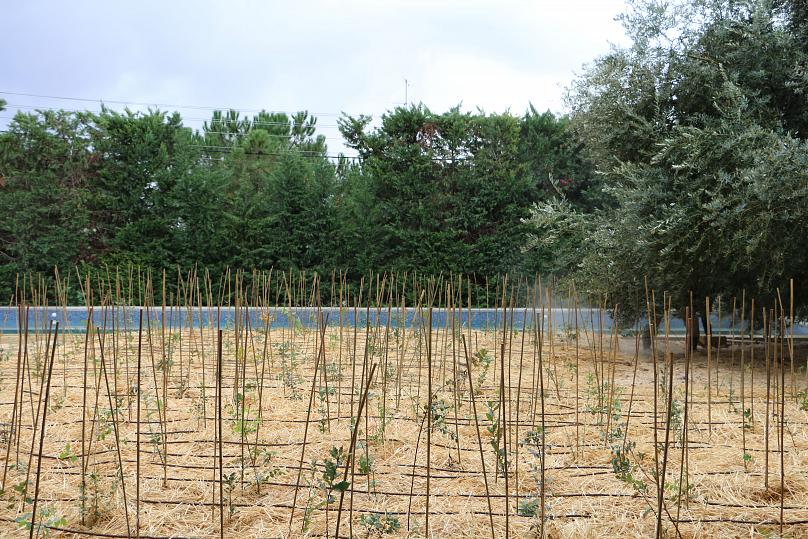
For 10 days, the duo excavated the land, mixed the soil to create an optimum soil structure and planted 380 saplings of 23 native species. Eastern Strawberry Trees, Aleppo Oak, Mt. Tabor Oak and Palestinian Pistachio were among the trees they planted.
The project was a success, and within two years the saplings had grown into a dense forest with trees of three and four metres. Making the site the first Miyawaki Forest in the Arab world.
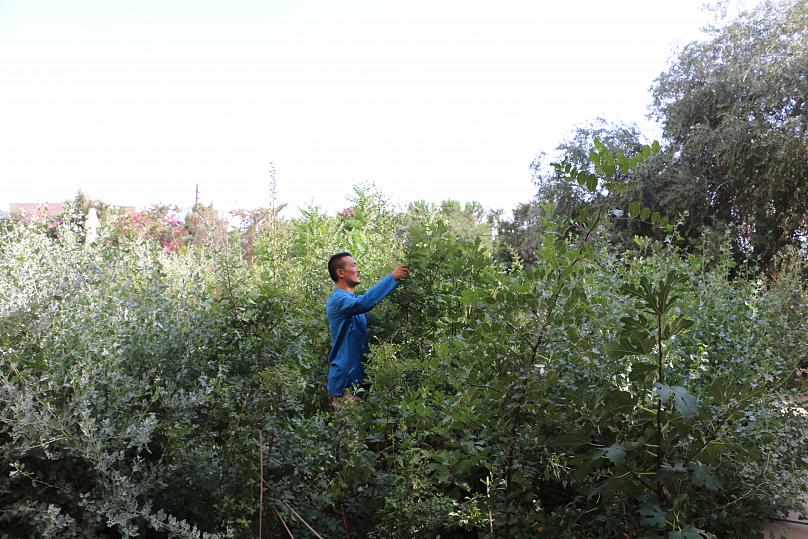
The pair have since gone on to plant two other Miyawaki Forests in Amman. “It has been amazing to witness the success of the methodology and what it can provide for Jordan,” Deema said.
Saving endangered species
At the heart of Deema’s mission is saving Jordan’s native species. Many of the plants that she works with are endangered with only around 30 left in the whole country. “If one of those species was to disappear, the whole ecosystem would collapse, so to maintain life in Jordan, we need these native species.”
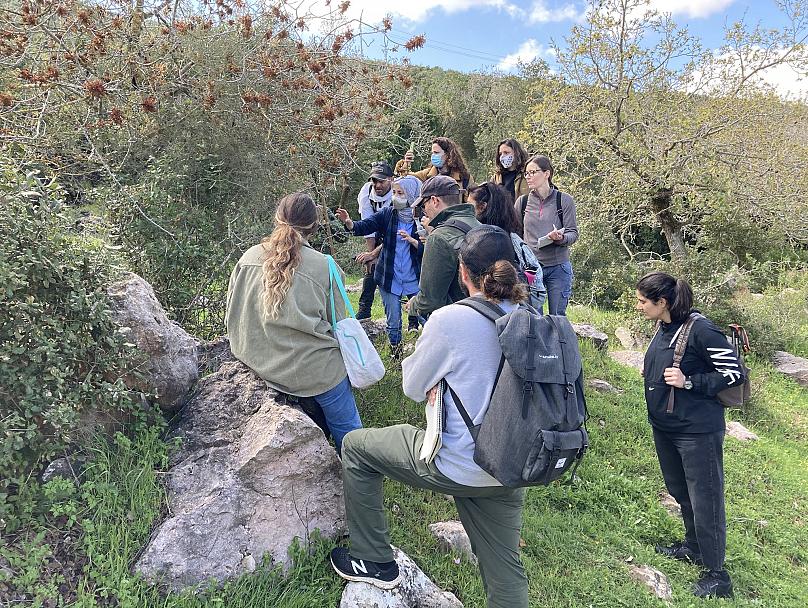
Jordan has no species recovery plan, so Deema and her colleague Nochi have begun harvesting the seeds and selling the native saplings at local nurseries.“Our work now is mostly about creation. It’s about reintroducing the native species into places where they no longer exist,” she explains.
They also provide workshops and invite volunteers to be part of the seed processing. This allows Jordanians to learn about the native species of the land and be more aware of the risk of losing them. “I see it as somehow citizen-led species recovery intervention, doing what we believe is right, and being part of the solution,” Deema explains.
Article Credit: euronews
